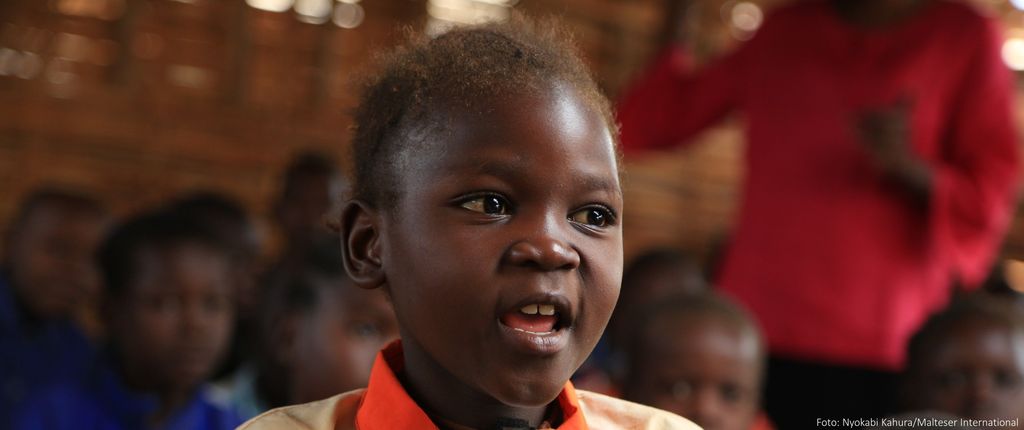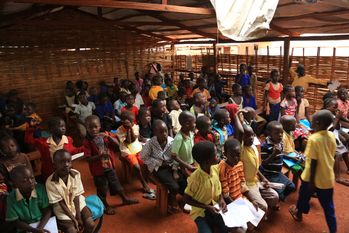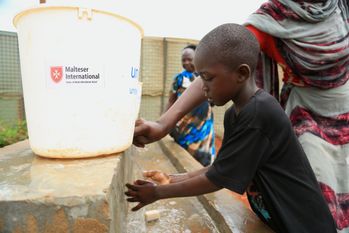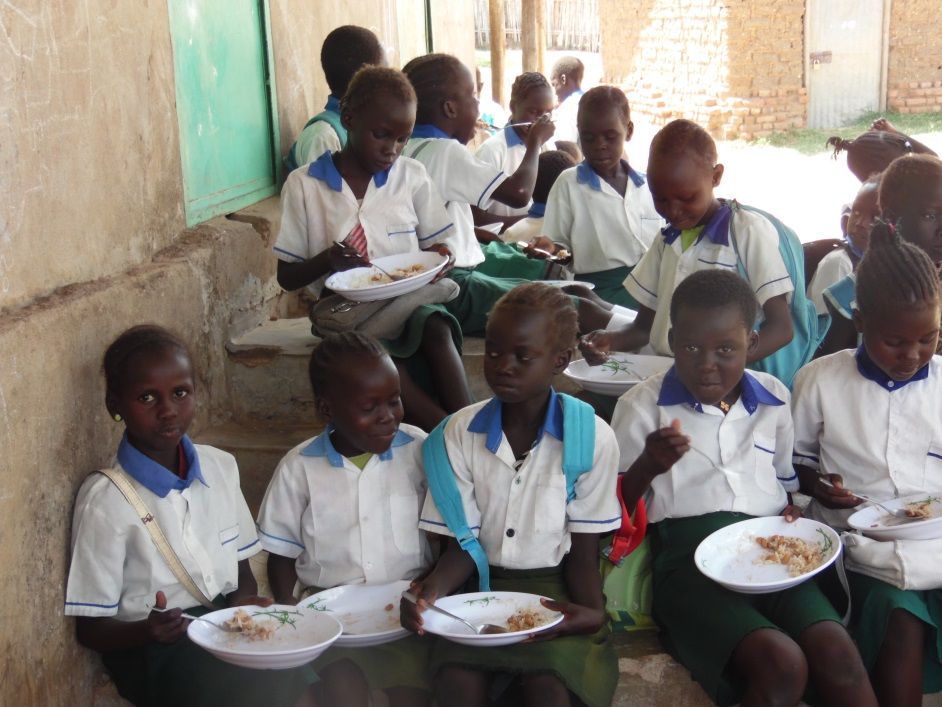
Lunch meals and good hygiene practices
In South Sudan, our school feeding program aims at alleviating hunger for the most vulnerable by providing primary school children with a hot, nutritious meal every day. We also organize hygiene training so that children do not suffer from hunger, remain healthy and attend school regularly.
Hawa Peter is one of over 5000 children whose education has been saved by this measure. “I am grateful to be able to come here every day and get something to eat,” she says, adding that school presents her an opportunity to get out of the crowded refugee camp she lives in. At just 8 years, Hawa already knows the importance of good hygiene for her health.
Diseases spread quickly in refugee camps
Hygiene situation in the refugee camps in South Sudan is in many cases appalling. The provisional tents erected in the camps are positioned so close together that there is hardly enough space for a breath of fresh air. When it rains, puddles of water remain on the muddy ground for days on end – a perfect breeding ground for mosquitoes. There are still too few washrooms and latrines in the camp. These conditions in the crowded camps present ideal conditions for the spread of diseases like malaria, pulmonary infections and typhoid. Our work for the displaced population also involves constructing additional sanitary facilities, while promoting good maintenance.
School meals and training in hygiene
To ensure that children remain healthy under these difficult circumstances, we combine our school feeding program with lessons in good hygiene. Children are taught how to properly wash their hands, school cooks are trained in good hygiene practices, and teachers are trained on how best to care for children who have fallen ill, while keeping themselves healthy.
Lunch meals and lessons in good hygiene go hand in hand
For us, providing lunch meals at school and supporting good hygiene practices go hand in hand: When children are healthy and well nourished, they can learn better. Since the start of our school feeding program, the number of children recorded to have stayed at home due to illness has gone down. The children themselves has also noticed that their individual performance in school has improved.
For children like Hawa, this is an added motivation to go to school. She wants to be a nun when she grows up. "There are nuns in the refugee camp, they are always friendly and willing to help people who have problems. I would like to be like that too! It's hard for me to see sad people. My dream is to help as many people as possible and spread joy."












